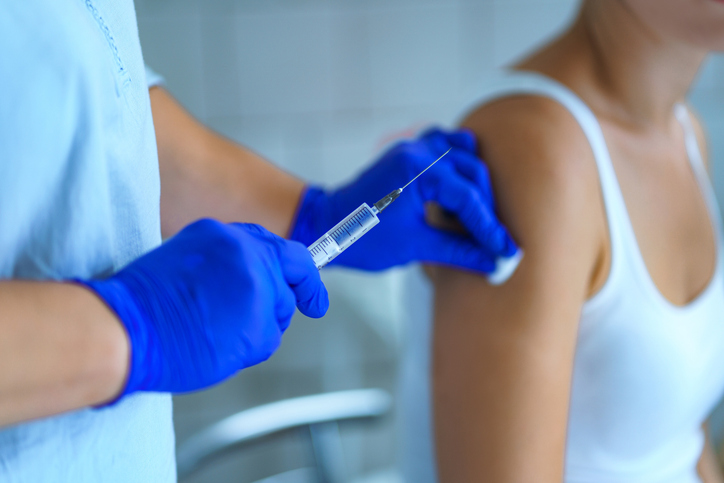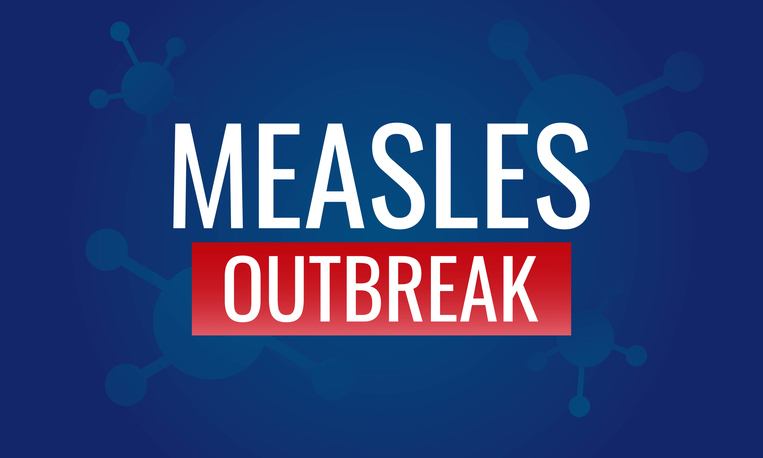
For many, measles might feel like it’s something from the past. An issue their own parents might have worried about, as opposed to a condition that should still be making headlines today. And in a country like Singapore, where most children receive their measles, mumps, and rubella (MMR) vaccine on schedule, it’s easy to assume we’re already protected.
We hate to break it, though… measles hasn’t gone away.
New waves of outbreaks have been reported across the globe, including in parts of Southeast Asia. In today’s highly connected world, with many frequently travelling for work or pleasure, diseases like measles can easily cross borders — even to places with strong healthcare systems.
Once introduced, measles spreads fast. It remains one of the most contagious viruses, capable of infecting those who aren’t fully vaccinated through casual contact or even lingering air particles. And while most children in Singapore are protected, young children who’ve missed their doses — as well as under-vaccinated adults — are still at risk. That’s why keeping up with measles vaccination in Singapore remains just as important today as it was in previous generations.
In the next section, we look at what’s happening globally and why it matters to us.
Rising Cases of Measles Around the World
Recent data shows a clear rise in cases across multiple regions.

In 2024, the World Health Organization recorded over 120,000 cases and 38 deaths in the European region. These were the highest figures reported since 1997. In North America, both the United States and Canada saw early surges in 2025, with more cases recorded in the first two months than in the whole of the previous year.
Measles outbreaks have also been reported in other parts of the world, including Kyrgyzstan and Mexico, highlighting that this is not a region-specific issue. Cases are being detected across different continents, which reflects a broader shift in global measles trends.
Closer to home, Southeast Asia is showing similar patterns. In Vietnam, 40,000 suspected and 3,400 laboratory-confirmed cases were reported between January and March 2025, including outbreaks in areas that had not previously been affected. The Philippines reported 922 cases during the same period, marking a 35 per cent increase compared to early 2024.
While vaccination coverage remains high in Singapore, the Ministry of Health has confirmed six laboratory-confirmed measles cases this year, compared to two in the same period last year. Most were linked to recent travel to affected countries.
Given our close ties to the region and Singapore’s role as a major travel hub, imported cases will continue to be a possibility. Because measles spreads so easily, even one case can result in small clusters, particularly among individuals who have not received the measles vaccine or may have missed a scheduled dose.
Measles Is Far from Harmless
If a measles case enters the community, the concern isn’t just how quickly it spreads — it’s also about how serious the illness can be, especially for babies, young children, and those who are not vaccinated.
Symptoms usually appear seven to 14 days after exposure, starting with:
- High fever (may spike above 40°C)
- Cough
- Runny nose
- Red, watery eyes
- White spots inside the mouth (Koplik spots)
- Rash, typically spreading from the face down to the body
While some recover without issue, measles can lead to serious complications, particularly in children under five, adults over 20, pregnant women, and individuals with weakened immunity.
Common complications include:
- Ear infections
- Diarrhoea
- Pneumonia, a leading cause of measles-related deaths
- Encephalitis (brain swelling), which can cause seizures, hearing loss, or disability
- Hospitalisation — about one in five unvaccinated individuals
- Pregnancy risks, such as premature birth or low birth weight
- Death, in one to three out of every 1,000 infected children
There’s also a rare but fatal long-term complication known as subacute sclerosing panencephalitis (SSPE). This brain condition can develop years after a measles infection, particularly if the virus was contracted before the age of two.
These are not just statistics — they’re reminders of why measles is never something to take lightly, and why vaccination remains the most reliable form of protection in Singapore.
The Best Protection Is Still Vaccination
Given the risks that come with measles, prevention remains the most dependable way to stay protected.
In Singapore, measles vaccination is mandatory under the Infectious Diseases Act. It is part of the National Childhood Immunisation Schedule, with two recommended doses of the MMR vaccine — the first at 12 months, and the second at 15 months.
Still, not everyone may be fully protected. Some adults may have missed their childhood doses, while others might be unsure of their vaccination history — something that becomes especially relevant before travelling or during periods of heightened risk.
If you’re checking whether it’s time for your child’s next dose, or simply unsure about your own status, our clinics can help you review what’s needed and support your next steps.
Unsure of Your Measles Vaccination Status?

Not everyone has a clear record of when they received their measles vaccine. Some might have missed a dose during childhood, while others may be unsure whether a booster is needed before travelling.
Whatever the situation, it helps to know where you stand. Understanding your vaccination status allows you to make informed decisions, not just for yourself, but also for your family and the wider community.
At Healthway Medical, we can help check your records, assess whether any vaccination is due, and guide you through the next steps if needed. If a vaccine is required, it can be administered during your visit.
To get started, visit one of our clinics located across Singapore. Our team is here to support your health with clear guidance and accessible care.





